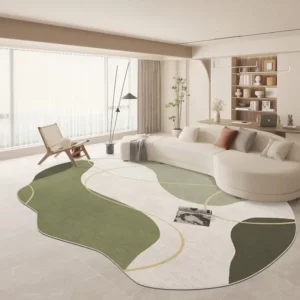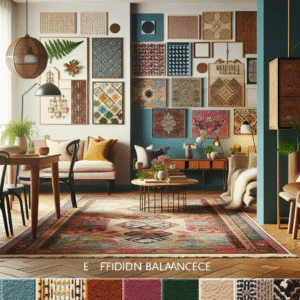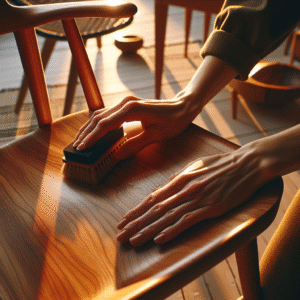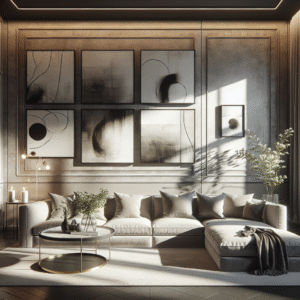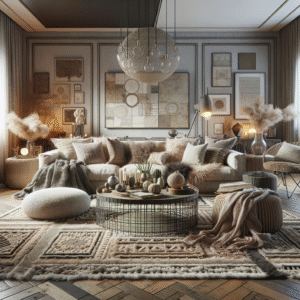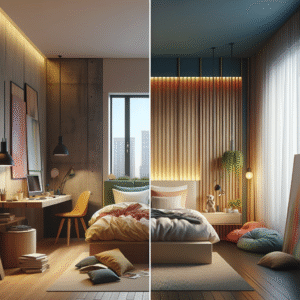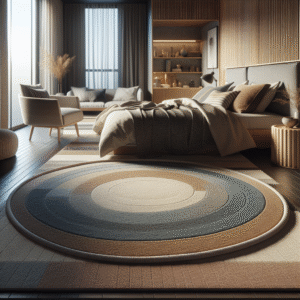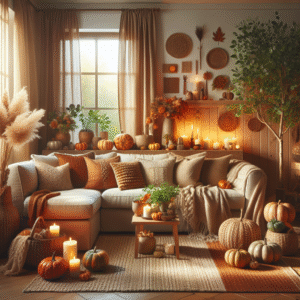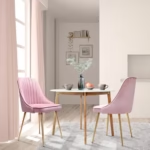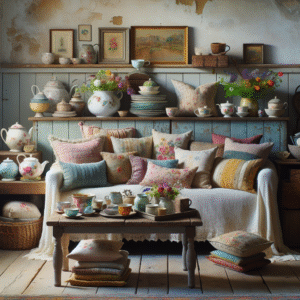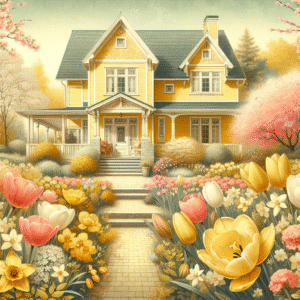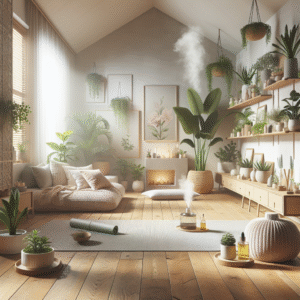Illuminating Choices: How Room Lighting Influences Your Art Selections
Imagine walking into a room filled with beautiful art pieces, yet feeling something is off. The lighting doesn’t complement the art—it diminishes its vibrancy. This scenario is more common than you think! Lighting plays a crucial role in how we perceive art, influencing not just the artwork’s colors and textures but also our emotional connection to it. In this article, you will discover how room lighting significantly affects your art selections and learn actionable tips to create a harmonious space.
We’ll explore different types of lighting, their impact on various art styles, and how to choose the right fixtures for your home. By the end of this guide, you will be equipped to make informed choices that enhance your living space and elevate your art collection. Let’s dive in!
Understanding the Basics of Room Lighting
Before delving deeper into how lighting influences art selections, it’s essential to grasp the basic types of lighting:
1. Ambient Lighting
This is the primary source of light in a room, providing overall illumination. Ambient lighting sets the mood and influences how colors appear in art.
2. Task Lighting
Task lighting is focused lighting, such as desk lamps or reading lights, designed to illuminate specific areas. Task lighting can help highlight particular art pieces.
3. Accent Lighting
Accent lighting is used to showcase specific items—like a great painting or sculpture. This lighting draws attention and adds drama to your art display.
Understanding these types of lighting helps you better select and position your art to make an impact.
The Psychology of Light and Color
Light and color are intrinsic to our emotional responses. How does this interplay affect art selection?
Color Temperature
Light bulbs are categorized by their color temperature, ranging from warm to cool. This temperature affects how colors appear in art. Warm light (around 2700K) can make colors feel rich and inviting, while cool light (above 5000K) can create a crisp, modern vibe.
Art Styles and Lighting
Different art styles also respond uniquely to various lighting. For example, impressionist paintings, often characterized by their vivid colors, can appear washed out under stark white lighting. Warmer lighting enhances their vibrancy.
Choosing the Right Lighting for Your Art
Selecting the proper lighting isn’t just about aesthetics; it’s about enhancing your art. Consider these tips:
Assessment of Natural Light
Evaluate the natural light in your space. Does it change throughout the day? Understanding this helps determine which art pieces to place where.
Layering Light
Combining ambient, task, and accent lighting creates depth and interest. Use ambient lighting as the base and layer on task and accent lighting for focus.
Highlighting Techniques
Use adjustable fixtures to direct light towards specific art pieces. Spotlights or adjustable wall sconces can create dramatic accents.
Case Studies: Successful Art Lighting Designs
1. Residential Examples
A New York City apartment dramatically transformed by strategically placed recessed lighting shows how effective light placement can elevate art. The owners utilized cool white lights for frames and warm LEDs for the wall art, creating a cozy yet sophisticated ambiance.
2. Gallery Spaces
In museum settings, galleries often employ specialized lighting to enhance art. The National Gallery in London experiments with different color temperatures to maintain the integrity of various artworks while enhancing the viewing experience.
Tools and Resources for Lighting Your Art
Recommended Tools
Consider the following tools and resources for effective lighting:
- Smart Bulbs: Easily adjustable color temperature and intensity.
- Light Meters: Measure the brightness of light, ensuring optimal conditions for your art.
- Lighting Design Apps: Use apps that help visualize your space with different lighting setups.
FAQ
How does lighting affect the value of art?
Proper lighting can enhance the emotional response to art, potentially increasing its value by emphasizing its features and details.
What kind of bulbs are best for displaying art?
LED bulbs with a color temperature around 3000K are ideal as they do not emit UV rays and provide a warm light that is suitable for most art pieces.
Can I use daylight bulbs for showcasing art?
Daylight bulbs can be used, but caution is needed as they can sometimes wash out colors. Consider mixing with warmer lights to balance.
What is the ideal lighting angle for art?
Lighting should typically be positioned at a 30-degree angle to the artwork for optimal highlighting without glare.
Conclusion
In summary, lighting is not merely a functional aspect of displaying art; it is a transformative element that can enhance the viewer’s experience and emotional connection to the piece. By understanding the types of lighting and their implications on art selection, you can create spaces that are not just visually attractive but also deeply resonant. Now, it’s time to experiment with lighting in your own space!
For more insights on home decor and design, check out our articles on Color Theory in Home Decor and Styling Small Spaces with Art.
Content Disclaimer
The information provided in this article is for educational purposes only. For personalized advice regarding art selection and lighting, please consult a qualified interior designer or lighting specialist.
Categories
- Accent Walls & Ceilings (11)
- Art Curation & Gallery (26)
- Bedding Style Trends (41)
- Bedroom Makeover (31)
- Bohemian & Eclectic Styles (11)
- DIY & Budget-Friendly Decor (10)
- Eco-Friendly Design (11)
- Furniture Care (30)
- Home Decor & Design Ideas (101)
- Home Wellness Spaces (11)
- Integrated Outdoor Living (10)
- Kids and Nursery Decor (11)
- Living Room Decor (31)
- Minimalist & Japandi Style (14)
- Mix & Match Techniques (30)
- Modern & Contemporary Design (10)
- Rug Sizing & Placement (30)
- Seasonal Home Decor (33)
- Small Space Solutions (15)
- Wall Art & Painting Tips (33)
Recent Posts
Recent Comments
Archives
Product Gallery
-
 Large Area Green Rugs for Bedroom Nordic Living Room Decoration Shaped Carpet Irregular Plush Lounge Rug Home Thick Washable Mat Rated 5.00 out of 5$57.07 – $359.83Price range: $57.07 through $359.83
Large Area Green Rugs for Bedroom Nordic Living Room Decoration Shaped Carpet Irregular Plush Lounge Rug Home Thick Washable Mat Rated 5.00 out of 5$57.07 – $359.83Price range: $57.07 through $359.83 -
 Nordic Style Rugs for Bedroom Morandi Living Room Decoration Carpet Large Area Geometry Lounge Rug Home Cloakroom Non-slip Mat Rated 5.00 out of 5$40.98 – $620.81Price range: $40.98 through $620.81
Nordic Style Rugs for Bedroom Morandi Living Room Decoration Carpet Large Area Geometry Lounge Rug Home Cloakroom Non-slip Mat Rated 5.00 out of 5$40.98 – $620.81Price range: $40.98 through $620.81 -
 Irregular Shapes Living Room Decoration Carpet Modern Style Rugs for Bedroom Home Thicken Plush Rug Fluffy Soft Lounge Floor Mat Rated 4.75 out of 5$58.00 – $360.83Price range: $58.00 through $360.83
Irregular Shapes Living Room Decoration Carpet Modern Style Rugs for Bedroom Home Thicken Plush Rug Fluffy Soft Lounge Floor Mat Rated 4.75 out of 5$58.00 – $360.83Price range: $58.00 through $360.83



